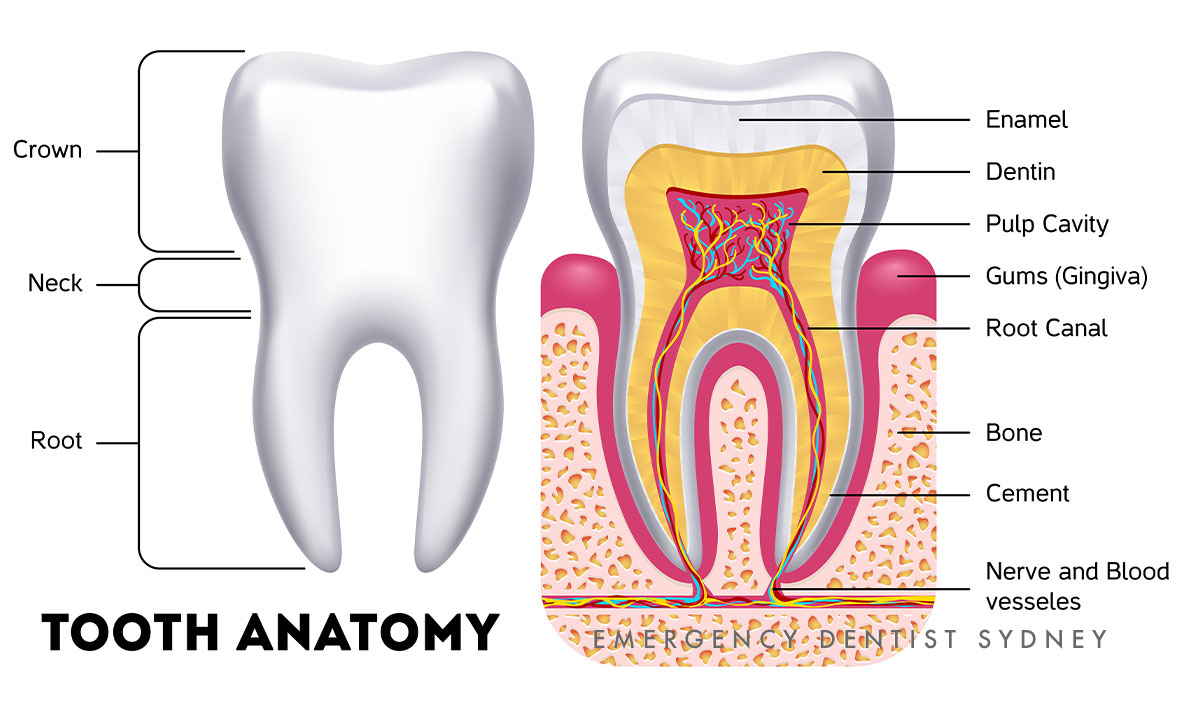When to rush to your after hours dentist
If you have severe pain in a tooth or teeth it might mean that you have bigger problems than a cavity. Damage to the root canal most often occurs when you’ve neglected your oral health for a while. A little pain, managed with painkillers, can often turn into a big pain that results in an emergency visit to your after hours dentist. If you’re experiencing tooth pain that just won’t go away, here are some of the warning signs that you need a dentist, fast.
What is Dental Pulp?
Dental pulp is the soft material in the centre of your teeth. It contains the nerve, connective tissue and blood vessels. Basically, it’s everything inside the hard enamel exterior of your teeth. When this part of your tooth becomes badly infected, you may need a root canal to take away the pain and save the tooth. Here are some of the symptoms that you’ll experience when you have a dental pulp infection:
Pain when chewing or biting down.
Discolouration on the gum around the infected tooth.
Ongoing dull or severe pain in the roots or gums.
Swelling in the gum around the affected tooth.
A bad taste in your mouth because of pus coming from the infected area.
If you experience any of these symptoms, you need to visit your after hours dentist as soon as possible to get the problem fixed. However, you may not experience any severe symptoms at all when you have a tooth infection. This is why you need to have regular check-ups to check on your oral health and pick up any hidden problems.
What Causes Tooth Infections?
When your tooth is infected it isn’t the hard, outer surface that’s the issue. The outer surface is made of enamel, which doesn’t contain any living cells, so it can’t get infected. Instead, it’s the dental pulp, the soft inner parts of the tooth, which are the problem.
There are several things that can cause the dental pulp to become infected. This includes:
Large fillings.
A crack or chip in the tooth.
Face trauma.
Deep decay.
Repeated dental procedures on the same area.
When you experience these issues, bacteria can get through the enamel and into the dental pulp. The bacteria then multiply inside the chamber and cause an infection. If left untreated, the infection can spread throughout your mouth, threatening the health of other teeth. It may also get into your bloodstream and cause infections in other part of the body, including your brain. This is obviously a very serious situation that you want to avoid at all costs.
Treating an Infected Tooth
If an infection is caught early, then a course of antibiotics may clear it up. However, if the infection is too entrenched then you will need a root canal. This is a procedure that a lot of people are afraid of, usually because of stories about root canals from the past. You’ve probably heard about the pain and discomfort of this procedure from older relatives. However, dentistry has come a long way over the last couple of decades. These days, root canals are no more painful or traumatic than a normal filling.
Today’s root canals can usually be completed in a single visit unless the infection is so bad that it needs additional treatment. Before the root canal, your dentist will examine your mouth and take X-rays, so they know exactly what’s happening with your tooth. Here’s what to expect on the day of the procedure:
The tooth is numbed using a local anaesthetic.
Your dentist will use a laser to make a small hole in the crown of the tooth.
The infected pulp is removed, and the empty chamber is cleaned thoroughly.
The root canal filling is put into place.
Once this is complete, the hole is sealed, and a permanent crown is put on the tooth.
This procedure should be completely pain-free and takes around 30 minutes to complete. In fact, the pain of your infected tooth is usually far worse than the root canal treatment. And once you’re done, the tooth is literally dead. There’s no soft tissue to get infected again and the tooth has no nerve, so you shouldn’t experience any pain or problem with it from that point forward.
Emergency Dentist Sydney Says:
If you have an infected tooth or other dental emergency, contact our Emergency Dentist in Sydney. Our caring and expert staff are available 24 hours a day to help you with all your emergency dental needs.
Need Advice Or Emergency Dental Care In Sydney CBD?
Contact our friendly team





